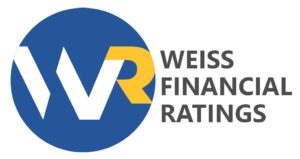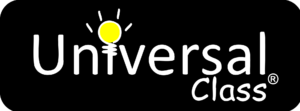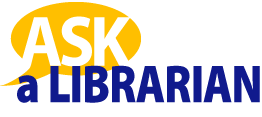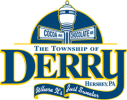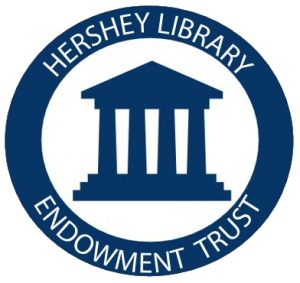Collection Development includes the planning, selection, acquiring, cataloging, and weeding of the Library’s collections in all formats. Library Materials may include, but are not limited to the following: books, periodicals, government publications, reference works, newspapers, microfilm, cd’s, dvd’s, large print materials, Braille books, educational on-line databases, and downloadable material. Weeding is the regular, on-going, and systematic evaluation process whereby library materials are withdrawn from the collection based on specific criteria such as outdated, worn, unused, damaged, and/or duplicated materials. The goal of the Hershey Public Library is to select, organize, preserve, and make freely and easily available to all individuals in the community printed and other materials which will aid them in the pursuit of information, education, research, recreation, culture, and in the creative use of leisure time. The primary goal of collection development is to provide the best possible collection with the financial resources available. The decision to select any item for the collection is based on demand, anticipated need, and the effort to maintain a balanced collection.
The library patron is an important part of the selection process. An individual request from a patron for a title is usually honored if the request conforms to the guidelines outlined in this policy statement. Suggestion forms can be obtained at the circulation desk or by completing this form. Suggestions regarding services and other aspects of library operations can be made by contacting the director at library@derrytownship.org or by calling 717-533-6555 ext. 3720. The Hershey Public Library endorses the Library Bill of Rights, the Freedom to Read Statement, and the Freedom to View statements of the American Library Association, all of which are included at the end of this policy and are intended to be a part of this policy statement.
SELECTION POLICY
Library materials are selected on the basis of informational, educational, cultural, and recreational value. These materials are selected in compliance with the mission and goals of the library. The following general criteria are also used in selecting materials for addition to the collection:
• importance and value to the collection and library users
• significance of the subject matter
• current appeal and popular demand
• local interest cost and budgetary constraints
• authority, accuracy, and artistic quality.
RESPONSIBILITY FOR SELECTION
The ultimate responsibility for materials selection and the development of the library collection rests with the Library Director who operates within the framework of policies determined by the Library Board. The actual selection of materials is accomplished by the Collection Development Librarian, the Children’s Librarian and other professional library staff under the general supervision of the Director.
FORMATS OF MATERIALS
Materials may be available in a variety of formats. Factors governing the choice of format include anticipated use, storage requirements, ease of access, and the format of earlier editions. When all other factors are equal, ease of access by the public should be the primary consideration.
LOCAL AUTHORS
If authors with ties to Dauphin, Lancaster, Lebanon or Cumberland County wish to donate their published work to Hershey Public Library it will considered for addition based on guidelines outlined in this policy statement.
GIFTS, MEMORIALS, AND DONATIONS
The library accepts gifts, donations, and will purchase memorials. The library reserves the right to evaluate all gifts, donations, and memorial requests in accordance with the criteria applied to purchased materials; those that do not meet the library’s objectives and policies may be refused. Bookplates may be provided for memorials and gifts, and a letter for tax purposes may be sent to the donor. No other conditions may be imposed relating to any gift, donation, or memorial either before or after its acceptance by the library.
WEEDING OR WITHDRAWAL OF MATERIALS
The withdrawal of materials, also called weeding of the collection, is an ongoing process directly related to collection development. Materials that are worn, damaged, outdated, duplicated, no longer accurate, and no longer used may be removed from the collection. Library staff, under the general direction and supervision of the Library Director will be responsible for the weeding of the collection.
ACCESS
The Library Board recognizes that full, confidential, and unrestricted access to information is essential for patrons to exercise their rights as citizens. The Board believes that reading, listening, and viewing are individual, private matters. While anyone is free to select or reject materials for themselves or their own minor children, the freedom of others to read or inquire cannot be restricted. The Library does not stand in loco parentis. Parents and guardians, not the Library, have the responsibility to guide and direct the reading, listening, and viewing choices of their own minor children. Selection of adult collection materials should not be inhibited by the possibility that minors may utilize the items. The library collection will be organized and maintained to facilitate access. No materials will be labeled, restricted, sequestered, or altered because of any controversy about the author, subject matter, or intended potential audience.
COMPLAINTS AND REQUESTS
The Library Board considers all materials selected under this policy to be constitutionally protected under the First Amendment of the United States Constitution. If a patron claims that a particular item is not constitutionally protected, the burden of proof rests with the patron. The Library Board recognizes the right of individuals to question materials in the library collection. Whenever a patron objects to the presence of any library material, the complaint will be given reconsideration. The patron will be given a “Request for Reconsideration of Library Materials” form to complete. This completed form will be given to the Library Director who will then meet with professional staff to evaluate the material in question and consider the merits of the completed request form. The professional staff will consider whether the material meets the selection criteria outlined in this policy. A decision will be made regarding whether or not to add or withdraw the material within a reasonable amount of time, with written reasons for the decision conveyed to the patron. If the patron is dissatisfied with the staff’s decision or the written reply, he or she may appeal the decision to the Board at a regularly scheduled Board meeting. The Library Board, after receiving public testimony from the patron, other interested parties, and from the Library Director, will decide whether or not library policies have been followed and whether to add or withdraw the material in question.
Materials subject to complaint shall not be removed from use and circulation pending final action. If a court having jurisdiction over the library decides that any material in the collection is unprotected by the Constitution of the United States, such material will be removed immediately. Material under court consideration will remain available to patrons until a final ruling is made.
Board Approved 11/21/17


